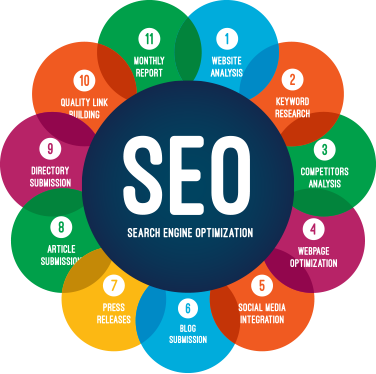Search Engine Optimization, more commonly known as SEO, is a terminology that every communications professional must have come in contact with in the course of creating content. If you’ve ever wondered what the fuss is all about with SEO, then you’re about to learn why.
SEO is what ensures that your content is seen by more people which increases your chances of getting more leads and customers. There is no point in churning out good content on a regular basis if there is no one seeing them. SEO prevents this from happening.
What Is SEO?
SEO is the process of modifying your content to improve visibility and ranking on the search engine after it is published. Beyond Google and the digital marketing scope, SEO is fast becoming a regular feature in different aspects of the communications industry. Communications professionals must strategically generate content that meets SEO requirements to guarantee that the content gets to the right audience and achieves the desired results.
Elements of Search Engine Optimization
In understanding the elements of SEO, you have to understand the two main components that make up the terminology which is “search engine” and “optimization”. You must also understand the role they play in ensuring you get the desired results.
1. Search Engine
The search engine serves as the middleman between you and your target audience. Every communication process requires sending a message to a receiver through a communication channel. In this case, the search engine result page serves as the channel through which the information you have created is delivered to the expected recipients. Like a screen, it displays content in response to a person’s question in the order of relevance.
2. Optimization
The optimization process requires that you craft your content in a way that the search engine understands it and considers it relevant enough to be placed at the top of the list.
On one hand, if your article is displayed on the first page of the search engine, you get more prospects to view your page and possibly carry out the action you have stated in your article. On the other hand, if the search engine does not consider your article relevant enough, this greatly reduces your chances of reaching potential customers through your content.
Not too many people are patient enough to go through the second or third search pages of Google so your goal is to create content that would rank on the first page of the search engine.
3. Keywords or Key phrases
So how does the search engine interpret the message you have encoded in your article? This is where keywords come in. Keywords are likely words or phrases that internet surfers are constantly searching for in relation to the topic you are writing about.
Your article should have the relevant keywords embedded in it so that the search engine can identify and display it as one of the most relevant articles on the topic being searched for. However, you also have to include the keywords in your writing in such a way that it makes sense to your readers. While you may be able to attract a bulk of visitors to your page, you may not be able to retain them if you stuff keywords all over your article in a manner that makes comprehension difficult.
So, SEO involves using the right keywords to help you rank better on the search engine while also passing across a clear message that will convince your readers to take the action you want. Your call to action could range from subscribing to a list or purchasing a product on your website to scheduling a consultation.
Different tools exist online to help you search for relevant keywords to use in your article. These keywords have different categories, such as high-ranking or low-ranking, short-tail or long-tail, local, and relevant to your business location. After researching for the keywords to use, you must tactfully include them in your content titles, image titles, subheadings, links and so on for the best results.
Why Is SEO So Important?
Search Engine Optimization is the key to leveraging the opportunities that the digital space provides for your brand. Its importance culminates into two main components which would give you results that align with your digital marketing efforts.
1. Visibility and Brand Awareness
When you apply best SEO practices, your webpage will rank higher on the search engine result page which translates to more visitors to your website. This invariably increases your visibility and brand awareness. As more people visit your website, they familiarize themselves with your brand and could convert into customers with time.
2. Page Authority
If your webpage consistently ranks high on the search engine result page, it begins to build what is called Page Authority. This means that the search engine begins to recognize your site as one that always provides quality and useful information. Other factors can affect your page authority such as having external links from other sources that the search engine recognizes as credible and with high web traffic.
3. Off-Page SEO
The other aspect of SEO is referred to as off-page SEO and it has to do with other technical features from the backend of your website. All your SEO efforts might be futile if there are certain errors on your page. These errors could be in the form of duplicate pages, URL length or load speed of your website and could affect how the search engine interprets the message you’re trying to pass across with your content.
It is important to note that most of the time, the results of your SEO efforts do not emerge overnight. You have to consistently keep at it to begin to see the results. But considering the benefits you stand to gain at the end of the day, it is definitely worth the while.






